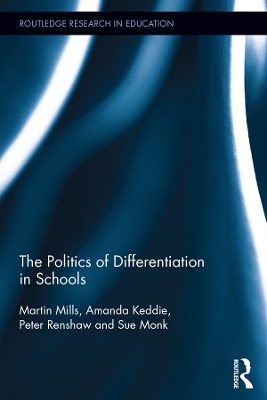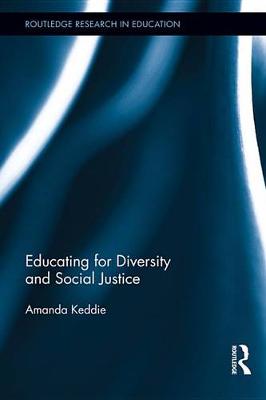Routledge Research in Education
2 total works
The Politics of Differentiation in Schools
by Martin Mills, Amanda Keddie, Peter Renshaw, and Sue Monk
In many English-speaking countries, teachers are encouraged to differentiate their classrooms, and in some cases, through various policy mechanisms. This encouragement is often accompanied by threats and sanctions for not making the grade. By exploring the ways in which one education system in Australia has mandated differentiation through an audit of teacher practices, this book provides a timely engagement with the relationship between differentiated classrooms and social justice. It covers tensions, for instance, between providing culturally-appropriate classrooms, including constructing engaging and relevant curricula, and lowering expectations for students who have traditionally been marginalised by schooling. The data for this book has been collected from the same group of teachers over a period of three years, and offers detailed insights into how a particular politics of differentiation has played itself out in the context of a ‘global reform movement’ that has focused on improving student outcomes.
Educating for Diversity and Social Justice foregrounds the personal stories of educators who are engaging the space of schooling as a site of possibility for realizing the goals of social justice. It is a book inspired by a vision of education as a practice of freedom where young people - especially those who are marginalized - can learn that they have a voice and the power to change their world for the better. Drawing on the work of US philosopher Nancy Fraser, the book examines issues of justice and schooling in relation to three dimensions: political, cultural and economic. While its focus is on research within three Australian case study schools, the book provides an international perspective of these dimensions of justice in western education contexts as they impact on the schooling performance of marginalized students. Towards greater equity for these students, the book presents a comprehensive scaffold for thinking about and addressing issues of schooling, diversity and social justice. Through practical examples from the case study research, the book illustrates the complexities and possibilities associated with schools providing inclusive environments where marginalized voices are heard (political justice), where marginalized culture is recognized and valued (cultural justice) and where marginalized students are supported to achieve academically towards accessing the material benefits of society (economic justice).

